The unknown crocodiles
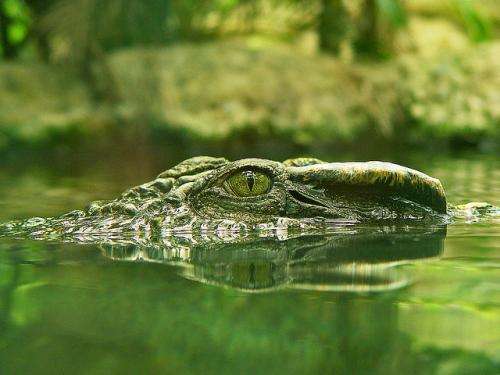
Just a few years ago, crocodilians – crocodiles, alligators and their less-known relatives – were mostly thought of as slow, lazy, and outright stupid animals. You may have thought something like that yourself the last time you were in a zoo and saw them lying still for hours, making people wonder if they were alive or made of plastic.
But people who worked with crocodilians – zoologists, breeders, animal trainers, tribal hunters – knew that these animals were capable of amazing things. And recently this knowledge has finally found support in the form of scientific publications.
Now we know that crocodilians have a weird communication system composed of chemical signals, various calls, infrasound vibrations too low for us to hear, and body language. They can take care of their babies for more than a year, feeding them, protecting them, even putting them together in crèches – like daycare centers protected in turn by many parents. They can disperse seeds of rainforest trees. They can bond with certain people and play with them. They can use little sticks to lure egrets looking for nesting material. And they can hunt in teams, each animal playing the role best suited for its size and agility; for example, large adult alligators can drive fish into shallows where small, agile youngsters lie in ambush.
How they've maintained their mystique
Why are these amazing facts only coming to light now? There are many reasons.
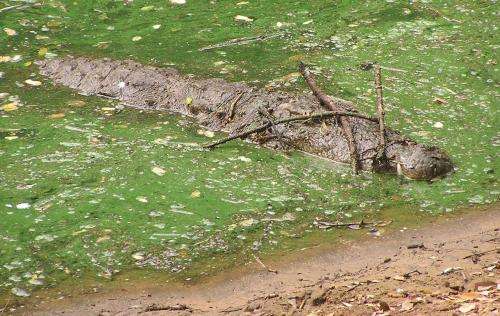
First, scientists don't study natural history as much as they used to. To get your research financed nowadays, it seems you need to be testing a fancy theory, or using a new technology, or contributing to some major cause such as finding cure for cancer, stopping global warming, or slowing down the ongoing mass extinction. You don't get paid for just watching animals, no matter how cool the stuff is that you're discovering.
Of course, this is a fundamentally wrong approach; it is impeding not just the science, but also our ability to fix major problems such as the mass extinction, because we no longer have the basic data on which our fancy theories should be based.
Second, crocodilian behavior is extremely difficult to see, especially in the wild. These are nocturnal animals living in swamps and muddy rivers, mostly in the tropics. Few people dare work there at night, and even fewer know how to observe nocturnal animals without disturbing them. These things aren't taught in most universities. You can do your research in a zoo, but it's not the same because many forms of behavior can only be seen in wild animals.
Third, time doesn't flow for crocodilians like it does for us mammals. We are warm-blooded, so we need a lot of energy to keep our body temperature constant, and that makes us constantly hungry and active. Compared to us, crocodilians are the Taoist sages of the animal world. They lie back, conserve energy and silently absorb information about their surroundings. Eventually the moment comes when they decide it's time for action, and when they do, they can make Jurassic Park's velociraptors look like plucked chickens.
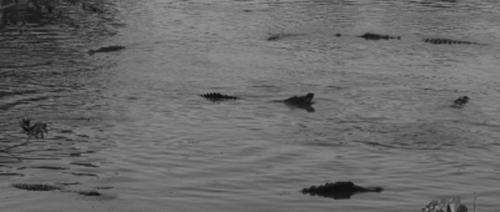
But to see this action, you have to spend weeks, months, sometimes years feeding mosquitoes in the swamps. Some Nile crocodiles, for example, hunt only once a year, during the wildebeest migration. Few scientists can afford to commit to a project where you get data once a year, if at all. Even if you somehow manage to get a grant for this, you'll run out of money long before having something to show for it.
Embrace the challenge
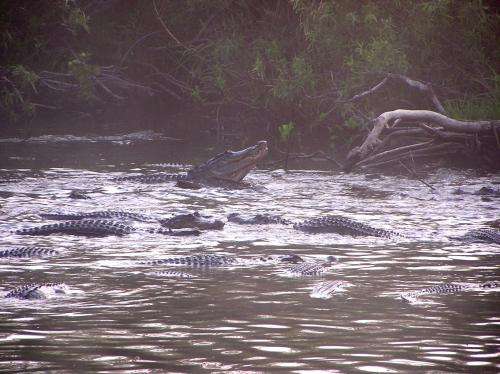
The only way you can do it is by thinking out of the box. I write books and sell my photos to finance my research. I use Facebook to survey people who don't usually publish their observations in scientific journals: hunters, tour guides, zoo directors, amateur naturalists. I've learned to be as comfortable in a tropical swamp at night as I am in my apartment on a winter evening with the fireplace on and the coffee brewing.
Studying crocodilians is no longer a challenge for me – it's pure fun. And the best part of it is that there's still a lot to be discovered and understood. We've just scratched the surface.
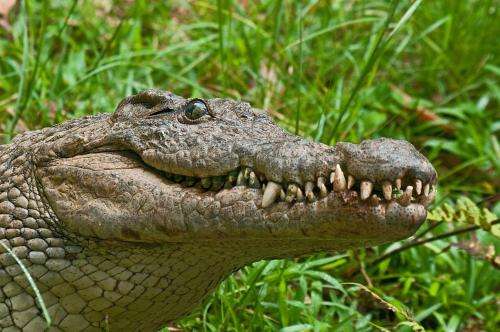
Provided by The Conversation
This story is published courtesy of The Conversation (under Creative Commons-Attribution/No derivatives).
![]()



















